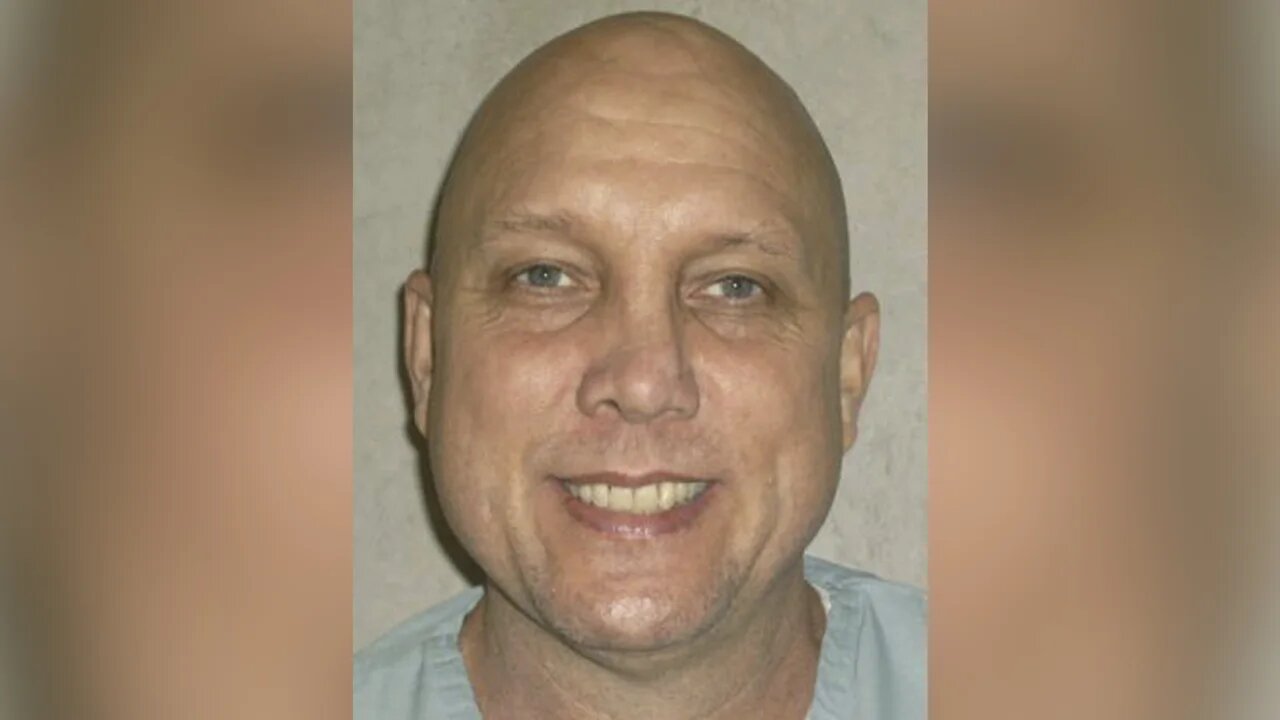Oklahoma on Thursday carried out the execution of Phillip Dean Hancock, a man who steadfastly maintained that he acted in self-defense when he shot and killed two men in 2001.
The 59-year-old was given a lethal injection after Gov. Kevin Stitt refused to commute his sentence, sparking renewed debates about the justice system and the use of the death penalty.
The execution took place under high tension when Governor Stitt’s decision to deny clemency was revealed just minutes before the scheduled start time. Hancock’s legal team, desperately seeking an extension and requesting DNA testing on physical evidence of the homicide, faced a swift denial.
Steven Harpe, executive director of the Oklahoma Department of Corrections, confirmed the last-minute legal maneuver to CBS, adding a layer of drama to an already contentious situation.
Hancock, strapped to the gurney inside the execution chamber, took a moment to thank his legal team while maintaining his claim of self-defense. The delay in the start of the execution, which extended beyond 11 in the morning, increased the uncertainty surrounding the entire process.
Phillip Dean Hancock: Claims of self-defense
Hancock’s case has been mired in controversy, and his legal team requested DNA testing in October to validate his claims of self-defense. However, the state and the court denied this request, allowing the execution to continue without potentially crucial evidence being examined.
Despite pleas for clemency and a re-evaluation of the case, Hancock’s execution went ahead. The Rev. Don Heath, president of the Oklahoma Coalition to Abolish the Death Penalty, expressed deep concern about the governor’s last-minute decision, emphasizing the anxiety experienced by Hancock as the pardon hung in the balance.
While strapped on the execution gurney, Hancock directed criticism at Attorney General Gentner Drummond’s office, calling them “vile” and “honorless.” Hancock’s final words included a repeated claim of self-defense and expressed his hope of being posthumously exonerated.
Attorney General Drummond, who witnessed the execution, remained stoic. In a statement after the execution, Drummond stressed that justice had been done for the victims, Robert Jett and James Lynch, and he hoped it would bring peace to their families.
Legal complexities and dueling testimonies
Hancock’s legal team argued that Jett and Lynch, the two men he killed, were members of outlaw motorcycle gangs and had attacked him inside a residence. Allegedly attracted to Jett, Hancock claimed he was forced to fight for his life, leading to the fatal shootings.
However, the state’s attorneys countered these claims, citing shifting accounts from Hancock and a witness who testified that he chased Jett into the backyard after the initial shooting, with damning words exchanged before a second fatal shot.
Hancock’s execution is the fourth in Oklahoma this year and the 11th since the state resumed executions in October 2021. Oklahoma has faced significant scrutiny for its high per capita execution rate since reinstating the death penalty in 1976. . .
The controversy surrounding Hancock’s case adds to the ongoing debate over the effectiveness and morality of capital punishment; The execution of Phillip Dean Hancock highlights the complexities inherent in the criminal justice system and the lasting impact of decisions made in the name of justice.
Naturally, the execution of Phillip Dean Hancock in Oklahoma has reignited debates over the death penalty, claims of self-defense, and the broader implications of capital punishment.
Furthermore, doubts persist about the transparency of the justice system, the role of clemency, and the persistent debate over the morality of state-sanctioned executions.
Keep reading:
· Oklahoma inmate will be executed this Thursday after committing double murder in 2001
· “I didn’t kill anyone,” Hispanic man insists on his innocence shortly before being executed in Oklahoma for the rape and murder of a dance student in 1996
· Inmate executed by lethal injection in Oklahoma said he forgave the governor for having him killed
